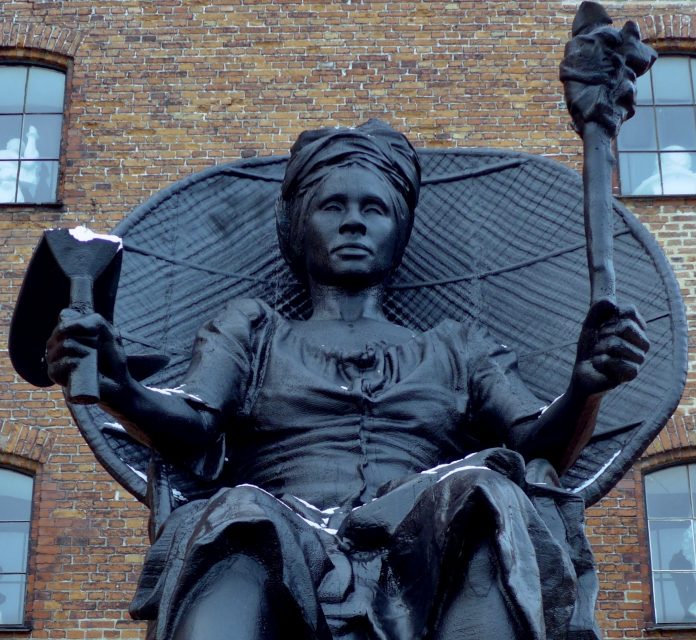
Socialistisk Biblioteks Tidslinje med links til begivenheder og personer i 2018.
Se også Index over personer, organisationer/partier og værker (som bøger, malerier, mm.), steder, begivenheder, mv., der er omtalt på hele Tidslinjen, titler og indhold på emnelisterne osv.
Året 2018 / The year 2018
- The best films of 2018. By Louis Proyect (CounterPunch, February 1, 2019)
- 2018 in protest photos. By Steve Eason (RS21: Revolutionary Socialism in the 21st Century, 1 January 2019)
- Looking back at 2018: a year of protest in pictures. By Shabbir Lakha (Counterfire, January 1, 2019)
- Best film and television of 2018. By David Walsh and Joanne Laurier (World Socialist Web Site, 31 December 2018)
- Musical highlights of 2018. By Matthew Brennan and Hiram Lee (World Socialist Web Site, 31 December 2018)
- Books in 2018: value, crashes and socialism (Michael Roberts Blog: blogging from a marxist economist, December 24, 2018)
- Favourites of 2018: rs21 reviewers recommend… (RS21: Revolutionary Socialism in the 21st Century, 28 December 2018). Music, films, books, exhibitions and TV.
- Counterfire’s book of the year. Part 1 (Counterfire, December 7, 2018) + Part 2 (December 21, 2018)
- 2018: the way forward (Counterfire, January 1, 2018). “Alex Snowdon looks back at the political developments of the last year with a view of what to expect from 2018.”
- Forecast for 2018: the trend and the cycles (Michael Roberts Blog: blogging from a marxist economist, December 29, 2017)
- Hope and dread in 2019. By Liza Featherstone (Jacobin, 7 January 2019)
- Five things the shutdown shows us about 2019 (SocialistWorker.org, January 4, 2019)
- 2019: new year, new crisis. By Alan Woods (In Defense of Marxism, 4 January 2019)
- Europe in turmoil: what to expect in 2019. By Chris Bambery (Counterfire, December 31, 2018)
- Forecast for 2019 (Michael Roberts Blog: blogging from a marxist economist, December 28, 2018)

3. januar 2018
Den indflydelsesrige anti-racistiske intellektuelle aktivist og leder af Institute of Race Relations (1973-2013) og redaktør på dets tidsskrift Race & Class, Ambalavaner Sivanandan, dør i London. (Født 20. december 1923, Colombo, Sri Lanka, dengang: Ceylon; død 3. januar 2018, London).
Leksikale mv.:
- Ambalavaner Sivanandan (Wikipedia.org)
- The role of A. Sivanandan (Institute of Race Relations). With Biography + Bibliography.
Nekrologer/Obituares etc:
In memory’s wake: remembering A Sivanandan (Verso, Blog, 3 January 2019). “In this essay, Fathima Cader reads his work via his novel When Memory Dies, which charts the struggles of three generations of Sri Lankans.”
At the interstices of race, class and imperialism: A. Sivanandan (1923-2018). By B. Skanthakumar (Socialist Project; The Bullet, February 8, 2018). “His investigations of the political-economy of racism – the racism that kills, more than the racism that discriminates – informed a generation of social workers, school-teachers, university students and lecturers, and campaigners for self-defence of black communities.”
Ambalavaner Sivanandan, 1923-2018. By Ken Olende (Socialist Review, Issue 432, February 2018). “Sivanandan talked and wrote on all aspects of racism in an anti-imperialist, Marxist framework.”
Ambalavaner Sivanandan obituary. By Gary Younge (The Guardian, 7 February 2017). “Director of the Institute of Race Relations who helped change the way Britain thought about race.”
Obituary: A Sivanandan (1923-2018). By Dominic Alexander (Counterfire, January 4, 2018). “Siva’s understanding of race, class and imperialism, and of humanity in general, will continue to inspire resistance to injustice and hope for socialism.”
Sivanandan’s socialism. By Yasmin Khan and G. R. McColl (League for Fifth International, 4 May 1994). “His writings have shaped the outlook of a whole layer of black activists. A revolutionary socialist critique of Sivanandan’s ideas, and the strategy which flows from them, is therefore long overdue.”
All that melts into air is solid (Verso, Blog, 13 July 2017). “In this two-part essay, A. Sivanandan critiques the New Times current developed within Marxism Today, and its influence on the rhetoric of Labour in the 1990s”. The essay was first published in Race & Class (Vol.31, No.3, 1989).
Se også
- Institute of Race Ralations (Wikipedia.org)
- Institute of Race Relations (IRR) (site)
- Race and Class (Wikipedia.org)
20. januar 2018
Naomi Parker Fraley dør (født 26. august 1921). Hun var modellen for den ikoniske plakat for kvindelige ammunitionsarbejdere, Rosie the Riveter, under Anden Verdenskrig, “We can do it”.

Se:
Naomi Paker Faley (Wikipedia.org)
Rosie the Riveter (‘Nitter-Rosie’) havde en søster i propagandaen for kvinders indsats på mænds tomme arbejdspladser i krigsindustrien som Wendy the Welder (‘Svejser-Wendy’). Plakaten blev et feministisk ikon fra 1980’erne.
Se: Rosie the Riveter (Wikipedia.dk). Dansk artikel, og en længere engelsk.
Kvinde fra ikonisk plakat er død. Af Amanda H. Alberts (Ekstrabladet, 24. januar 2018)
Obituaries: Naomi Parker Fraley, the real Rosie the Riveter, dies at 96. By Margalit Foxjan (The New York Times, January 22, 2018).
Rosie The Riveter was a tough gal, but not a feminist icon. By Glenn T. Stanton (The Federalist, June 1, 2017). “Rosie the Riveter is at once hard, strong, beautiful, and unmistakably feminine, a seeming contradiction all in one delicate frame. But she’s not who you think she is.”
Rosie the Riveter is a bogus icon of female empowerment: ‘We Can Do It!’ but what is ‘it?’. By Stephanie Buck (Timeline, April 23, 2017). “The irony being that, whereas Rosie the Riveter today might stand for a woman’s general right to choose, the poster’s first application implied she did not.”
Militarism: Revolutionary mothering and Rosie the Riveter. By Judith Deutsch (Socialist Project/The Bullet, March 1, 2017). “A Black Rosie the Riveter was featured on the cover of the New Yorker magazine. The original picture of white Rosie frequently appears as an image of women’s equality as a laborer.”
Sorry Beyoncé, Rosie the Riveter is no feminist icon. Here’s why. By
Rosie the Riveter is an emblem of capitalism. By
Myth-Making and the “We Can Do It!” Poster. By Gwen Sharp (The Society Pages/Sociological Images, January 4, 2011). “The image is widely seen as a symbol of women’s empowerment and a sign of major gender transformations that occurred during the 1940s.”
4. marts 2018
Den britiske teoretiske fysiker Stephen Hawking dør i Cambridge. (Født i Oxford, 8. januar 1942).

Se:
Stephen Hawking (Wikipedia.dk). Dansk leksikon-artikel med link til længere engelske.
A Brief History of Time (Wikipedia.org). “A popular-science book on cosmology (the study of the universe) by British physicist Stephen Hawking.”
Articles:
‘Den danske Hawking’: »Verden har mistet sin mest betydningsfulde fysiker«. Af Lise Brix (Videnskab.dk, 17. april 2018). “Stephen Hawking har været et stort forbillede og inspiration for danske Arne Lykke Larsen, der ligesom Hawking lider af ALS og er teoretisk fysiker.”
Stephen Hawking (1942–2018). By Neal Ó Riain (Jacobin: Reason in Revolt, March 19, 2018). “Throughout his life he used this platform to popularize science but he never shied away from the political, a passion he inherited from his mother, who he described as a ‘free-thinking radical’.”
Cosmologist Stephen Hawking dies at 76. By Bryan Dyne (World Socialist Web Site, 15 March 2018). “Hawking never wavered on his materialist conception of the Universe. Even as his health deteriorated, his deep understanding of the laws of motion that govern matter on cosmological scales led him to reject religion and mysticism as a way of understanding the world.”
A brief history of Stephen Hawking: A legacy of paradox. By Stuart Clark (New Scientist, 14 March 2018). “The most recognisable scientist of our age, Hawking holds an iconic status. His genre-defining book, A Brief History of Time, has sold more than 10 million copies since its publication in 1988, and has been translated into more than 35 languages.”
Revolution in science. By Duncan Blackie (International Socialism, Issue 42, Spring 1989, p.115–136). Review of Stephen W. Hawking, A Brief History of Time, from the big bang to black holes (Bantam Press, 1988). “Hawking’s book is an astonishing case in point. It’s grasp of a partial (although admittedly very sophisticated) understanding of nature makes for a very inspiring read. Yet his understanding remains partial, for it carries all the baggage of bourgeois thought along with it.”
Litteratur
- Mesterværket: bag om Hawkings univers. Af Stephen W. Hawking (Klim, 2017, 201 sider).
- Hawkings uendelige univers. Af Stephen W. Hawking (Gad, 2006, 214 sider). Oversættelse af A Brief History of Time: From the Big Bang to Black Holes (1988).
- Hawking og de sorte huller. Af Paul Strathern (Polyteknisk Forlag, 1997, 76 sider).
31. marts 2018
En statue af Queen Mary rejses ved Vestindisk Pakhus (Larsens Plads), 7 meter høj og lavet i flamingo.
Links:
I am Queen Mary (site). “… at Prizm Art Fair 2017 LaVaughn Belle and Jeannette Ehlers present their project ‘I Am Queen Mary’, a collaborative public art project that creates a monument in the city of Copenhagen that challenges the narratives around the Danish colonial history.” Bl.a. 1 times video-præsentation.
Klummen blev hans skæbne. Af Jes Fabricius Møller (Kristeligt Dagblad 3. april 2018 + (især!) svar fra hans kollega, Gunvor Simonsen, fra Saxo Intituttet på Københavns Universitet).
Se også på Socialistisk Bibliotek:
- Tidslinjen 1. oktober 1878 om Fireburn, arbejderopstanden på St. Croix.
Den sydafrikanske antiapartheid- og ANC-leder Winnie Madikizela-Mandela dør i Johannesburg. (Født 26.9.1936 i Bizana (Eastern Cape province).
Under apartheid-regimet var hun gift med ANC-lederen Nelson Mandela, 1958-1996.
Hun var kontroversiel som ANC-leder.

Se:
- Winnie Mandela (Wikipedia.dk). Med link til længere engelske artikel: Winnie Madikizela-Mandela.
- Hvem var Winnie Mandela? (Global Aktion)
- Winnie Madikizela-Mandela (SAHO, South African History Online). Longer biography.

Artikler:
Winnie Mandela var folkets Mandela. Af Amalie Ravn (Information.dk, 28. april 2018). “I Vesten har Winnie Mandela altid stået i skyggen af sin mand Nelson, og hendes eftermæle er broget. I Sydafrika er det anderledes – her hyldes hun i disse uger for hendes årelange kamp mod undertrykkelse og ulighed.”
A human, not a myth. By Sean Jacobs (Jacobin: Reason in Revolt, 14 April 2018). “We should resist constructing self-serving myths about political figures — even someone as heroic as Winnie Mandela.”
Winnie Nomzamo Madikizela-Mandela 1936-2018. By Charlie Kimber (Socialist Worker, Issue 2599, 4 April 2018). “Winnie Nomzamo Madikizela-Mandela represented some of the most courageous elements of the struggle against apartheid in South Africa, but also its weaknesses.”
Winnie Mandela (1936-2018). By Sisonke Msimang (Jacobin: Reason in Revolt, 4 April 2018). “Through her fearlessness and charisma, Winnie Mandela came to be seen by the people of South Africa’s townships as the Mother of the Nation.””
Winnie Mandela was a hero: If she’d been white, there would be no debate. By Afua Hirsch (The Guardian, 3 April 2018). “Peaceful protest did not end apartheid: it took revolutionaries. And it shouldn’t be difficult to choose between a system of racial supremacy and a person who helped overthrow it.”
Winnie Mandela helped Nelson become the radical that he was. By Peter Hain (The Guardian, 2 April 2018). “At a pivotal point in South Africa’s history, Winnie urged Nelson to risk ANC alienation and embrace young activists.”
Se også på Socialistisk Bibliotek:
Linkboxen Nelson Mandela, 1918-2013
13. april 2018
Afstemning om forslaget om fusionen af LO og FTF til ny landsorganisation pr. 1. januar 2019 blev vedtaget på ekstraordinære kongresser i Odense. På en fusionskongres samme dag …..
384 delegerede i LO stemte ja, mens 11 stemte imod. LO er paraplyorganisation for 18 fagforbund. FTF er fællesforbund for 75 mindre medlemsorganisationer og har 450.000 medlemmer.
Se:
Link:
13. april 2018

Filminstruktøren Milos (Jan Tomás) Forman dør i Danbury, Conn. USA. (Født i Cáslav, Tjekoslovakiet (nu Tjekkiet) 18. februar 1932. I sit hjemland bl.a. de socialrealistiske komedier som Blondinens kærlighed (1965) og den samfundssatiriske Brandmænd i fyr og flammer (1967).
Efter den russiske invasion af Tjekkoslovakiet i august 1968 flyttede han til USA, og lavede her sine to Oscar-belønnede hovedværk: Gøgereden (1975) og Amadeus (1984).
Gøgereden: One Flew Over The Cuckoo’s Nest 1975: Medicine time (YouTube.com; 3:31 min.)
Biografier:
- Milos Forman (1932-2018) (IMDb.com). Biography, videoes, filmography, lists etc.
- Milos Forman (Wikipedia.dk). Korte dansk artikel med link til længere engelske.
Artikler/Articles:
Filmmaker Milos Forman (1932-2018), one of the leading figures of the Czech New Wave: Director of The Loves of a Blonde, One Flew Over the Cuckoo’s Nest, Amadeus. By David Walsh (World Socialist Web Site, 16 April 2018). ”
Amadeus, the most beautiful scene (YouTube.com; 3:37 min.), https://youtu.be/vCY4ryE9uFU
1. maj 2018
Den tyske økonom Elmar Altvater dør i Berlin. (Født 24. august 1938, se denne, i Kamen, Nordrhein-Westfalen,). Senere professor ved Freies Universität i Berlin (til 2004). Medstifter i 1970 af tidsskriftet PROKLA.
5. maj 2018
200-året for Karl Marx’ fødsel markeres her med en række 2018-artikler om Marx’ politik, økonomikritik og værker, under betegnelsen Marx200.
Udgivelsen af artikler og bøger har vist sig så omfattende, at vi har valgt af lave en linkbox og flyttet materialet til denne
Se på Socialistisk Bibliotek:
Linkbox Karl Marx 200
15. maj 2018

Enhedslisten udgiver rapporten “Den politiske regnemaskine”.
Links:
Den politiske regnemaskine (Enhedslisten; online på Internet Archive). Tema på Enhedslistens site med video (25:32 min.): “Pelle Dragsted præsenterer rapportens hovedkonklusioner” + links til omtaler i aviser og radio. Hovedrapporten er p.t. ikke online.
Podcast: Rune Lund om Den blå regnemaskine (Radioaktiv, november 2018, 49:49 min.). “… en snak om finansministeriet skæve regnemodel og nogle bud på, hvad vi kan gøre ved det.”
Den politiske regnemaskine. Af Henrik Herløv Lund (Arbejderen.dk, 16. november 2018). “Enhedslistens rapport og læs-let udgave er som anført et absolut relevant indlæg i debatten om Finansministeriets regnemetoder og -modeller.”
Finansministerens højreorienterede regnemaskine. Af Per Bregengaard (Eftertryk, 7. november 2018). Artiklen er smagsprøve fra nedenstående pjece af samme forfatter. (uddrag fra s. 11-23).
Den politiske regnemaskine. Af Pelle Dragsted og Rune Lund (Politiken, 16. maj 2028; online på PelleDragsted.dk). “Finansministeriets regnemodeller bygger på et usikkert og selektivt grundlag, og har en markant bias til fordel for højreorienteret økonomisk politik.”
Finansministeriets regnemodel dumper i økonomi. Af Jesper Jespersen (Altinget, 16. maj 2018). “Det er tankevækkende, at det er Enhedslisten – partiet på den yderste venstrefløj, som journalisterne ofte udtrykker det – der her fremlægger dokumentation for, at den benyttede model ikke er retvisende.”
Litteratur:
Finansministerens højreorienterede regnemaskine – en politisk indføring i Enhedslistens rapport: “Den politiske regnemaskine” og debatten som fulgte efter. Af Per Bregengaard (Forlaget Solidaritet, 2018, 77 s.).
Den politiske regnemaskine: rapport om Finansministeriets økonomiske antagelser og deres politiske konsekvenser. Af Enhedslistens økonomiske sekretariat ved Pelle Dragsted, Jonas Gielfeldt og Anders Hadberg (Enhedslisten/Forlaget Solidaritet, 2018, 126 sider; online på Internet Archive). Hovedrapporten er p.t. ikke online.
Se også:
Regnemodeller skal bygge på virkeligheden. Af Lars Wernblad Hansen (Netavisen Pio, 29. juli 2018). Interview med Katarina Juselius: “Professor vil ryste hele fundamentet under de økonomiske regnemodeller. Især finansmarkedets betydning har indtil nu været overset, mener hun.”
Offentliggørelse af Finansministeriets redegørelse om dynamiske effekter af offentligt forbrug og offentlige investeringer (Finansministeriet, 28. maj 2018; online på Internet Archive). “Finansministeriet har netop oversendt en rapport til Folketingets Finansudvalg, hvori der redegøres for ministeriets behandling af offentligt forbrug og offentlige investeringer i forbindelse med vurdering af adfærdsvirkninger af økonomisk-politiske tiltag.”
Gamle data bag Finansministeriets skatteberegninger. Af Sven Johannesen (Djøfbladet, 9. marts 2016). “Finansministeriet anvender et studie baseret på 20 år gammel empiri, når det beregner effekten af topskattelettelser. Studiet får kritik for at være forældet og mangelfuldt.”
28. juni 2018
Den italienske marxist Domenico Losurdo dør. (Født i Sannicandro di Bari i Syditalien 14. november 1941, se denne).
10. juli 2018
En af det danske ungdomsoprør i 1968’s kendte skikkelser, medstifter af partiet Venstresocialisterne og af Thylejren, forfatteren Henning Prins, dør på Hillerød Hospital. (Født i København 5. august 1939).

Leksikalt:
- Henning Prins (Wikipedia.dk)
- Henning Prins (International forfatterbibliografi)
Links:
Kritisk portal (eget site; online på Internet Archive WayBackMachine). Indeholder omtaler/anmeldelser af egne og andres udgivelser, erindringer 1960-1970, fortællinger m.m.
Langelandsmanifestet – en skitse til Danmark (pdf). Af Ebbe Kløvedal Reich og Henning Kløvedal Prins. 1. udgave 1972 (Imladris/Tiderne Skifter, 2. udgave, 1977, 16 sider; online på Maoslyst.dk). “Langelandsmanifestet er et forsøg på at skabe en utopi for den fremvoksende kollektivbevægelse …”
Den store iværksætter og arkitekten bag Thylejren er død. Af Kristen Bjørnkjær (Information.dk, 12. juli 2018). “Henning Prins havde gennemgribende visioner for samfundet, og de lykkedes et langt stykke ad vejen med etablering af Thylejren, der blev hans masterpiece, som han bliver husket for, uanset hvad han senere foretog siden.”
Se også på Socialistisk Bibliotek:
Tidslinjen 4. juli 1970 Thylejren/Frøstruplejren.
19. juli 2018
Det israelske parlament, Knesset, vedtager den endelige udgave af omstridt lov: Nationalstatsloven. Den grundlæggende lov om Israel som det jødiske folks nationale stat.
Se:
- Basic Law: Israel as the Nation-State of the Jewish People (Wikipedia.org)
‘This is our state, the Jewish state… our nation, language and flag’ – Netanyahu triumphs with new law. By the editors (Mondoweiss, July 19, 2018)
Israel’s mask slips off. By David Palumbo-Liu (Jacobin, 31 July 2018). “With its passage of the ‘Jewish Nation-State Law’, Israel is no longer hiding the fact that it is not a democracy.”
Jewish Nation-State Law: Why Israel was never a democracy. By Ramzy Baroud (Counterpunch, July 26, 2018). “Israel has made its choice and it is, unmistakably, the wrong one. The rest of the world must now make its choice as well … against Israeli Jewish Apartheid and for Palestinian rights.”
Israel’s Nation-State Law and the dead end of Zionism. By Barry Grey (World Socialist Web Site, 21 July 2018). “The passage on Thursday by the Israeli Knesset of the ‘Nation-State Law’ enshrining Jewish supremacy as the legal foundation of the state marks a new stage in the crisis wracking Israel.”
Clarity as to the reality. By Tony Greenstein (Weekly Worker, Issue 1212, 19 July 2018).
“The open racism of Netanyahu is preferable to the platitudes of liberal Zionism.”
Israel passes law entrenching apartheid. By Tamara Nassar (The Electronic Intifada, 19 July 2018). “Israel’s parliament voted early Thursday to further entrench Jewish supremacy and racial discrimination against Palestinians in its constitutional law.”
The ‘nation state of the Jewish people’ bill is just more Apartheid with a veil. By Jonathan Ofir (Mondoweiss, May 11, 2017). “Yesterday, the bill titled ‘Nation State of the Jewish People’ (NSJP) was passed by the Israeli Knesset in a preliminary vote (48-41) … The obvious question would be ‘isn’t Israel already the nation-state of the Jewish people?'”
Netanyahu’s “Jewish nation” bill enshrines an apartheid-style constitution. By Jean Shaoul (World Socialist Web Site, 1 December 2014). “The agreement by Israeli Prime Minister Binyamin Netanyahu’s cabinet to present a Jewish nation-state bill to the Knesset at the beginning of December has provoked a major political crisis.”
Zionism: Quest for legitimacy (Weekly Worker, Issue 1026, 18 September 2014). “Israeli communist Moshé Machover examines the significance of Zionist claims that Israel is the ‘nation-state of the Jewish people’.”
The Nation state and Religion:
How the rule of the rabbis is fuelling a holy war in Israel. By Jonathan Cook (Jonathan-Cook.Net, 13 February 2019)
“Palestinians, the secular and women all face a harsher environment as theocratic tendencies are entrenched.”
Is Israel becoming a racist theocracy or an ethno-religious settler state? By Tony Greenstein (Tony Greenstein’s Blog, 24 March 2019)
“From gender divided campuses to religious books justifying the murder of non-Jewish children – Meet Israel’s vibrant democracy.”

Se også:
- Israel og identiteten. Af Michael Bach Henriksen (Kristeligt Dagblad, 3. juli 2000)
- Fra Jødisk Nationalhjem til Nationalstaten Israel. Af Jens Nauntofte (Palæstina-Info; online på Leksikon.org)
Se også på Socialistisk Bibliotek:
- Emneoversigten Palæstina / Israel
- Emnelisten Zionisme – Antizionisme: Historien om racisme og etnisk fordrivelse
16. august 2018
Den amerikanske soulsanger og borgerrettighedsaktivist Aretha Franklin dør i Detroit. (Født 25. marts 1942 i Memphis, Tennessee).
Se:
- Aretha Franklin (Wikipedia.org)

Souldronningen som sang om frihed. Af Emma Lundström (Socialistisk Information, 9. september 2018). “Et rankrygget, sjælfuldt, lysende liv, hvor Aretha Franklins utrolige, uforlignelige stemme blev stemmen for borgerrettighedsbevægelsen, for kvindekampen.”
The only queen we’ll respect (SocialistWorker.org, August 23, 2018). “Nicole Colson pays tribute to what made Aretha Franklin an unforgettable artist.”
Aretha Franklin (1942-2018) — a tribute to the Queen of Soul. By Hiram Lee (World Socialist Web Site, 18 August 2018). “To mourn her loss is also to recognize that she was an all-too-rare artistic type, the likes of which has not come along for some time.”
Aretha Franklin gave us a vision of struggle – and of a radically different world. By Liz Wheatley (Socialist Worker, Issue 2618, 17 August 2018). “Even if she never articulated a commitment to civil rights, her voice and songs contributed to larger political and social movements.”
Aretha Franklin — musical genius, truth teller, freedom fighter. By Farah Jasmine Griffin (The Nation, August 16, 2018). “Angela Davis, whose bond Franklin offered to post in 1970, says that the singer’s work ‘helped to shape and deepen a collective consciousness anchored in a yearning for freedom’.”
Aretha Franklin: preaching the gospel of liberation. By Yuri Prasad (Socialist Worker, Issue 2080, 4 December 2007). “A new collection of rare and previously unreleased recordings by Aretha Franklin are a powerful reminder of how she transformed popular music.”
Aretha Franklin: “Respect” – Lyrics/text
Respect, Franklin’s signature song: “Franklin reworked and rearranged the song, transforming it into a kind of working-class woman’s answer to the original. Over its taunting guitar licks and irresistible groove, Franklin’s trumpeting voice belted out the lyrics like someone who had long grown tired of remaining quiet. She wasn’t asking for respect so much as she was demanding it, and she literally spelled it out for anyone having trouble getting her point …” (Text from the World Socialist Web Site article above).
Respect – Aretha Franklin (1967)
Se også/See also:
Who will follow the example of Muhammad Ali’s principled stand in our day? By David Walsh (World Socialist Web Site, 6 June 2016). “That list of honorees … includes such figures as Sidney Poitier, Meryl Streep, Bob Dylan, Aretha Franklin, B.B. King, Stevie Wonder, James Taylor, Jack Nicholson, Paul Simon, Warren Beatty, Ossie Davis and Ruby Dee, Robert De Niro, Bruce Springsteen, Mel Brooks, Dustin Hoffman and Lily Tomlin.”
6. september 2018

Den svenske forfatter Sven Wernström dør i Østgotland. (Født i Stockholm 3. april 1925). Mest kendt for sine socialistiske børnebøger, bl.a. serien Trællene.
“Att veta att man snart ska dö
är inte särkilt kul
Man vill ju hängande ett tag
och helst till nästa jul …” (fra Sven Wernströms blog).
Links:
- Sven Wernström (Denstoredanske.dk)
- Sven Wernström (Sv.wikipedia.org)
- Sven Wernström (Bibliografi.dk: International forfatterbibliografi). Kronologisk bibliografi over de 45 værker, udg. på dansk.
- Sven Wernströms skrivhörna (egen blog)
En glødende agitator i en radikal tid: Sven Wernström (1925–2018) (Arbejderen.dk, 25. september 2018). “Forfatteren Ingemar EL Göransson skriver her om vennen og kollegaen gennem mange år.”
Han skrev den svenska vänsterns barnboksepos (Expressen, 17. september 2018). “Jens Liljestrand minns ett författarskap som levandegjorde en marxistisk samhällsanalys för det växande släktet.”
Ajö, Sven Wernström! Av Erik Haking (Flamman, 11. september 2018). “De samhälleliga orättvisorna måste göras tydliga – det var författaren Sven Wernströms credo.”
Til minne om Sven Wernström (Tjen Folket, september 2018). “Wernström var hele livet en tydelig stemme på venstresida i den svenske samfunnsdebatten.”
LO-prisvinder Sven Wernstrøm: “Socialdemokratiet er fortabt” (Oktobernet.dk, 2004). “Den svenske LO-formand Wanja Lundby-Wedin tildelte i dagene optil midsommer (Sct. Hans) årets Kulturpris til forfatteren Sven Wernstrøm.”
30. september 2018
Spillemanden Kim Larsen, forsanger i bandet Gasolin (1969-1978) dør i Odense. (Født 23. oktober 1945 i København). Kim Larsen var Danmarks mest sælgende og kendte musiker og tekstforfatter.
Medstifter af Himmelblåfonden, og engagerede sig i BZ’ttelsen af Ryesgade (se 14. september 1986).
Links:
- Kim Larsen (Wikipedia.dk)
- Kim Larsen er død (Dr.dk, 8. oktober 2018). Tema.
Artikler:
Sangen m Larsen (Arbejderen.dk, 1. oktober 2018). “Kim Larsen var fri og anti-autoritær.”
Tekster:
Anti-EU-sangen “Danas Have” af Kim Larsen (Kjukken.dk; online på Youtube.com; 4:41 min.).
Litteratur:
Så mange var ordene: Larsen, Rifbjerg og den danske sang. Red. af Thomas Thurah (Gyldendal, 2006, 192 sider). Samtalebog om 30 danske sange og salmer. Se anmeldelse af Birgitte Stoklund Larsen: Sange fra glemmebogen (Kristeligt Dagblad, 19. september 2006).
Kim Larsens lettere omskrivning af ‘Internationalen’ (se Tidslinjen 30. juni 1871 + tekster)
Dokumentar:
Gasolin – historien om Danmarks største rockband. Instr. Anders Østergaard (2006, 87 min.). Kan ses på Dr.dk indtil
28. oktober 2018
I Brasilien vinder højrekandidaten Jair Bolsonaro præsidentvalget med 55% af stemmerne, og skal være præsident fra 1. januar 2019. Efterfølger ca. 15 års præsidenter fra Arbejderpartiet (PT) (2003-2016 + 1 stk. borgerlig kup-præsident).

Links:
- Brazilian general election, 2018 (Wikipedia.org)
- Jair Bolsonaro (Wikipedia.org)
Blandt verdens højreorienterede regeringer, er Bolsonaros den med flest neo-fascistiske træk (Solidaritet.dk, 27. oktober 2019). “I dette interview diskuterer [Michael Löwy] Brasiliens præsident, Jair Bolsonaro, og højrefløjens tilbagevenden på globalt plan.”
Brasilien: Den neoliberale fascismes vej til magten (Konfront.dk, 17. oktober 2019). “Hvad fik brasilianere til at stemme på en kvindehader, en racist og en fjende af homoseksuelle. Det forsøger James Petras at give sit bud på i denne artikel.”
Brasilien: Historien om et bebudet kup. Af Lars Bohn (Solidaritet.dk, 8. april 2019. “I første omgang var alting som det plejede, da jeg besøgte São Paulo i Brasilien i juli sidste år … Men under overfladen mærker man, at noget er forandret.”
Brasilien: Bolsonaro-regeringens økonomiske og sociale plan. Af Joao Marcio, João Pedro Stédile (Socialistisk Information, 12. januar 2019). “‘Reformkaptajn’ Jair Bolsonaro har allerede forpligtet sig til ‘markedet’ og overdraget alle økonomiske beslutninger til storkapitalen, der er styret af finanskapitalen og udenlandske selskaber …”
Bolsonatos vej til magten. Af Niels Frølich (Kritisk Debat, 16. december 2018). “Skal man forstå brasiliansk politik, kommer man ikke udenom den korruption, der gennemsyrer hele samfundet og som også PT er præget af.”
Brasilien: Den neoliberale fascismes vej til magten (Konfront.dk, 17. november 2018). “Hvad fik brasilianere til at stemme på en kvindehader, en racist og en fjende af homoseksuelle. Det forsøger James Petras at give sit bud på i denne artikel.”
Valg i Brasilien: venstrefløjen forærede Bolsonaro sejren. Af Andreas Nørgaard (Revolution, 12. november 2018). “Vi bliver … nødt til at forstå, hvad der har ført til denne situation, hvad det vil betyde for klassekampen i Brasilien, og hvilken strategi arbejderbevægelsen bør følge for at bekæmpe Bolsonaros reaktionære regering.”
Med Bolsonaros sejr sætter Brasilien kurs mod at blive et neofascistisk regime. Af María Fernanda Arellanes Arellanes (Information.dk, 6. november 2018). “Valget af Bolsonaro kan ikke blot bortforklares som et fravalg af det korruptionsramte Arbejderparti. Mange stærke kræfter støtter Bolsonaro og hans politik med åbne øjne.”
Brasilien: Bolsonaros farligste støtter. Af Aldo Cordeiro Sauda og Benjamin Fogel (Socialistisk Information, 4. november 2018). “Hoforganet for det internationale finansielle borgerskab – The Economist – insisterer på, at det brasilianske militær har en modererende indflydelse på præsidentkandidaten Jair Bolsonaro. Men præcist det modsatte er tilfældet.”
Neo-backwardness in Bolsonaro’s Brazil. By Roberto Schwarz (New Left Review, Issue 123, May-June 2020, p.25-38). “Brazil’s foremost cultural theorist considers parallels between the rise of Bolsonaro and the 1964 military coup. Is capital once again advancing its modernization programme with the support of the country’s most backward-looking elements? Paradoxes of politics and culture, from Machado to the present, via tropicalismo and Glauber Rocha.”
Bolsonaro’s new chapter of Neoliberalism in Brazil. By Nara Roberta Silva (Jacobin, 18 December 2019). “Brazil’s 1988 post-dictatorship constitution enshrined a broad range of social rights and a modest welfare state. Since taking office a year ago, Jair Bolsonaro and his band of paranoid reactionaries have dedicated themselves to attacking and undermining those rights.”
Uncontrolled predatory capitalism: the core of Bolsonaro’s government. By Eduardo Albuquerque and Cláudia Feres Faria (International Socialism, Issue 164, Autumn 2019, p.25-47). “Its political actions and measures seem to have a very clear goal, which is to unleash this predatory side of Brazilian capitalism. To achieve this, institutional changes are important and Bolsonaro has put in place regressive policies everywhere, at national and local levels.”
Resisting Bolsonaro. By Jeffery R. Webber (Viewpoint Magazine, September 26, 2019). “How should we evaluate the strength and composition of the left-wing opposition in Bolsonaro’s Brazil? Not even a year into the Bolsonaro experience, it is still early to try to map the country’s varied fronts of resistance. But what follows provides at least some initial elements …”
A great little man: The shadow of Jair Bolsonaro. By Jeffery R. Webber (Historical Materialism, 13 March 2020). “In what follows I trace the political paralysis of the first five months, the popular social base of Bolsonarismo, its relationship to capital, and the role of evangelical Pentecostalism. I offer a biographical profile of Bolsonaro himself, map the three pivotal factions constituting the new government, and assess the economic outlook of the country.”
The preemptive counterrevolution and the rise of the far Right in Brazil. By Ricardo Antunes (Monthly Review, Vol.73, No.3, July-August 2019). “Bolsonaro, or the captain, as he is frequently called by his acolytes, is a sort of Donald Trump of the periphery—a second-rate Trump. Though he appears to be the most radical critic of the system, he is, in fact, the very image of the status quo, in all its brutality and rawness.”
Contemporary challenges for the working class and peasantry in Brazil. By João Pedro Stedile (Monthly Review, Vol.73, No.3, July-August 2019). “The electoral coups have resulted in a government without a social base in most of Brazilian society. It does not have a project for the majority or for the nation. It is just a project for international capital, dominated by banks and global corporations.”
Bolsonaro’s Brazil. By Perry Anderson (London Review of Books, Vol.4, No.3, 7 February 2019, p.11-22). “Brazilian politics are Italianate in character: intricate and serpentine. But there is little hope of grasping what has befallen the country without some understanding of them.”
The long Brazilian crisis: a forum. Edited and introduced by Juan Grigera and Jeffery R. Webber (Historical Materialism, January 2019). “With this symposium, Historical materialism historically and theoretically situates the current Brazilian conjuncture and contributes to the debate within the left on the international impact of these events, inviting further reflection on the moment of danger opening up before us.”
Brazil: how big a defeat? (International Socialism, Issue 161 Winter 2019). “The historian Valério Arcary, a revolutionary socialist activist since the 1970s … talked to Alex Callinicos about the meaning of Bolsonaro’s election.”
How the right won in Brazil (Socialist Review, Issue 441, December 2018). “The victory of Jair Bolsonaro in the presidential election was a shock felt the world over. Jorge Almeida discusses the crises which led to this point.
Bolsonaro elected president of Brazil: how did we get to this point? By Marcelo Badaró Mattos (RS21: Revolutionary Socialism in the 21st Century, 5 November 2018). “In this article, however, the intention is not to predict the future. Instead, this will be an attempt to analyse the historical path that has brought us to the current situation.”
Has Brazil fallen to fascism? By Alistair Farrow (Socialist Worker, Issue 2629, 4 November 2018). “The debate about whether Bolsonaro is a fascist matters because it determines how the left and others should respond to the new government.”
Trump in the tropics: Bolsonaro takes power in Brazil (Counterfire, November 2, 2018). “Michael Roberts explains how Bolsonaro won the Brazilian presidential election and what capitalism’s response is.”
Bolsonaro: Brazil’s Trump or Brazil’s fascist ruler? (Weekly Worker, Issue 1225, 1 november 2018). “Brazilian comrade Roberto della Santa gives us his assessment of a president who has declared that the military dictatorship ‘did not go far enough.”
How did a monster come to power in Brazil? By Todd Chretien (SocialistWorker.org, October 30, 2018). “Having clawed to power on the back of the military and security forces, Bolsonaro now proposes a dangerous lurch to the authoritarian right, pledging to wipe the PT from Brazil’s political map.”
Weathering the storm (RS21: Revolutionary Socialism in the 21st Century, 30 October 2018). “Reflections on the election of the far-right Jair Bolsonaro as president of Brazil by Max Leak, who spent Election Day (28 October 2018) with anti-fascists and feminists outside the Brazilian Embassy in London.”
Jair Bolsonaro and the threat to democracy in Brazil (Verso, Blog, 29 October 2018). “In this report from Brazil, Conor Foley asks what Bolsonaro’s victory could mean for the future of the country.”
Brazil election: Bolsonaro’s victory and the struggle ahead. By Orlando Hill (Counterfire, October 29, 2018). “The victory for far-right Bolsonaro is a dangerous development and it is now a critical moment for the left to unite and win the streets.”
A dark hour in Brazil. By Gianpaolo Baiocchi and Marcelo K. Silva (Nacla, October 29, 2018). “Jair Bolsonaro has propelled anger and vitriol against the Left, the poor, and so-called identity politics to the surface of Brazilian society. After his win, what’s next?”
Brazil: how could a far-right demagogue win the election? By Jorge Martin (In Defence of Marxism, 29 October 2018). “This result is a setback for the working class and the poor. We need to understand what it means, what led to this situation and what strategy the workers’ movement should follow, faced with this reactionary government.”
Is there fascism in Brazil? Bolsonarism as terror and ideology (Verso, Blog, 28 October 2018). “Gabriel Landi Fazzio looks to the history of fascism to analyse the resurgent far right.”
Here’s what Jair Bolsonaro thinks. By Sean Purdy (Jacobin, October 28, 2018). “Brazil has a fascist presidential frontrunner. Here are 20 of Jair Bolsonaro’s most racist and reactionary statements.”
Bolsonaro’s most dangerous supporters. By Aldo Cordeiro Sauda and Benjamin Fogel (International Viewpoint, October 27, 2018). “Establishment outlets like the Economist insist the Brazilian military is a moderating influence on the far-right candidate Jair Bolsonaro. But precisely the opposite is true.” På dansk: Brasilien: Bolsonaros farligste støtter (Socialistisk Information, 4. november 2018)
Privilege versus democracy in Brazil. By Alfredo Saad-Filho (Jacobin, October 27, 2018). “Jair Bolsonaro represents the rise of an authoritarian neoliberalism in Brazil and across the world. If he’s elected president, Brazilian democracy could collapse.” Also online with the title: Brazil: the collapse of democracy? (Socialist Project/The Bullet, October 27, 2018).
Brazil: IS imperialism and the rise of Bolsenaro. By Marcelo Zero (Eyes on Latin America, 27 October 2018). “The fall of egalitarian and sovereign Brazilian democracy.”
Is Bolsonaro a neofascist? (SocialistWorker.org, October 24, 2018). “Here, we publish an assessment of Bolsonaro and the threat he represents by Brazilian Marxist Valério Arcary, who is a leading member of Resistência, a revolutionary socialist current inside the Party for Socialism and Freedom (PSOL).”
The Bolsonaro effect. By Rosana Pinheiro-Machado and Lucia Mury Scalco (Jacobin, October 4, 2018). “What it means that a far-right fascist sympathizer is a leading candidate in Brazil’s presidential election this Sunday.”
Brazil: Neoliberalism versus Democracy. By Orlando Hill (Counterfire, April 5, 2018). Review of Alfredo Saad-Filho and Lecio Morais’ book (Pluto Press, 2018, 237 p.): “Saad-Filho and Morais use this Marxist understanding of history to gain an insight into Brazil’s political transition from dictatorship to democracy, and the economic transition from an import-substituting industrialisation policy (ISI) to neoliberalism.”
Se også:
The rise and fall of progressivism in Latin America. By Anderson Bean (Tempest, August 4, 2022). Review of Frank Gaudichaud, Massimo Modones and Jeffery R. Webber, The Impasse of the Latin American Left (Duke University Press, 2022, 216 p.). “The Impasse develops a persuasive, systematic periodization of complex relations between class struggles, progressivisms, the left, and popular movements from the 1990s to the present.”
Latin America in the time of COVID. By Mike Gonzalez (New Politics, No.70, Winter 2021). “Gonzalez examines the development of Latin American political economy and impact of the COVID-19 pandemic.”
How the New York Review of Books gets Perry Anderson and Brazil wrong. By John Trumpbour (Jacobin, June 21, 2020). “The New York Review of Books has dismissed Perry Anderson’s study of Brazil [Brazil Apart: 1964-2019, Verso, 2019, 240 p.] as a product of stodgy, doctrinaire leftism. But it’s their own reviewer, Larry Rohter, who lets dogma get in the way of facts.”
Snipers in the kitchen: State theory and Latin America’s Left cycle. By Juan Carlos Monedero (New left Review, Issue 120, November-December 2019. p.5-32). “We need a careful analysis of the state’s enormous capacity for reaction in defence of capital’s interests … These questions are central for an assessment of the cycle of left governments in Latin America …”
Rebellion, reformism, and reaction in Latin America (Verso, Blog, 6 November 2019). “Ashley Smith talked with Jeffrey R. Webber about the roots, politics, and trajectory of these struggles.”
The Left and Right in Latin America Today: An interview with Claudio Katz. By Jeffery R. Webber (Viewpoint Magazine, June 13, 2019). “Taken all together, what Katz offers is a lucid panorama of the elements shaping emancipatory politics in Latin America today and pushing it toward a future still unknown.”
Class battles in Latin America. By Andy Brown (International Socialism, Issue 162, Spring 2019, p.111-118). Review of Mike Gonzalez, The Ebb of the Pink Tide: The Decline of the Left in Latin America (Pluto Press, 2018, 199 p.). “Gonzalez’s book provides a short but wide-ranging foundation to a critique of these governments and an outline analysis of the political processes that took place … during their terms of office.” See also review by Samuel Farber: The fate of the Pink Tide (Against the Current, Issue 200, May-June 2019).
Latin America and the rise of the right (Socialist Worker, Issue 2640, 5 February 2019). “Alistair Farrow on how the Pink Tide ebbed and what can be done to stop the reactionaries.”
Latin America crises and contradictions. By Dianne Feeley (Against the Current, Issue 197, November-December 2018). Review of Susan J. Spronk and Jeffery R. Webber (eds.), Crisis and Contradiction: Marxist Perspectives on Latin America in the Global Political Economy (Haymarket Books, 2015, 386 p.). “This edited collection focuses on four Latin American countries — Argentina, Bolivia, Brazil and Venezuela …”
What’s left in Latin America? By Jenny Pearce (Red Pepper, October 30, 2018). “Once swept by a ‘pink tide’, the continent is now seeing the rise of authoritarian politics. What lessons are to be learnt from the varied left experiences?”
Latin America’s right-wing turn. By Pablo Vivanco (Jacobin, October 27, 2018). “The far right is on the rise not only in Brazil but across Latin America — driven by the middle class that left-wing governments helped create.”
The retreat of the pink tide in Latin America: Interview with Jeffery R. Webber (International Socialist Review, Issue 110, Fall 2018). “He spoke with ISO editorial board member Phil Gasper on April 5, the morning after the Brazilian Supreme Court voted to imprison the country’s former president, Lula da Silva.”
The Latin American Left’s shifting tides. By René Rojas (Catalyst, Vol.2, No.2, Summer 2018, p.7-71). “To understand its decline, this essay compares its rise and achievements to the rise of the region’s classical left, which emerged following the Cuban Revolution.” See reply from Jeffery R. Webber: The deadweight of structure (NACLA, January 7, 2019).
Lessons earned (Jacobin, 19 May 2017). A conversation with Sean Purdy, Mike Gonzalez, Kristin Ciupa and Benjamin Fogel: “What have we learned from the Pink Tide’s years in power?”
Assessing the pink tide. By Jeffery R. Webber (Jacobin, April 11, 2017). “Pink Tide governments delivered much-needed reforms. But they also defanged the movements that brought them to power.”
Latin America: a conservative restoration? By Marc Becker (Against the Current, Issue 188, May-June 2017). “After a decade of the left’s near-hegemonic control over government structures throughout Latin America, previously discredited conservative politicians who favor a return to the capitalist neoliberal polices of privatization and austerity are staging a comeback.”
Crisis in Brazil. By Perry Anderson (London Review of Books, Vol.38, No.8, 21 April 2016). “Dilma Rousseff’s … Workers’ Party, which had long enjoyed by far the highest level of approval in Brazil, became the most unpopular party in the country.” Svensk udgave: Kris i Brasilien (pdf) (Marxistarkiv.se, 1. maj 2016).
Reading guide: Marxism & Latin America. By Jeffery R. Webber (Historical Materialism, 2017).
Se også på Socialistisk Bibliotek:
- Tidslinjen: 7. oktober 1945, om ‘Lula’: Luiz Inácio Lula da Silva.
- Tidslinjen: 1. juni 2013, om folkeligt oprør i Brasilien.
17. november 2018
Medieplatformen Konfront.dk åbner. Forarbejdet begyndte i december 2016.
Konfront.dk “udspringer af og eksisterer i og for den danske radikale venstrefløj”.
 Se:
Se:
Konfront (site; online på Internet Archive).
Ny medieplatform vil styrke samarbejde på radikal venstrefløj (Arbejderen, 22. november 2019). Samtale med Rune Bødker fra Konfront.
Fra alle jer til alle os: Ny medieplatform vil skabe et rum for og af den radikale venstrefløj. Af Anna Cornelia Ploug (Eftertrykket, 16. november 2018). Interview med 2 medieaktivister fra Konfront.
8. december 2018
“De gule Vestes” bevægelse i Frankrig (Mouvement des Gilets jaunes) kulminerer med store demonstrationer i franske byer. Startede som en protestbevægelse i maj på Facebook mod afgiftsforhøjelser, og demonstrationerne begyndte 17. november.

På dansk/svensk:
- De gule veste (Wikipedia.dk)
De gule vestes oprør i Frankrig (pdf). Af John Graversgaard (Kritisk Debat, oktober 2019; online på DBC Webarkiv). “Der er ikke meget mediedækning at finde om De Gule Veste, endsige analyser, og denne artikel er et forsøg på at råde bod på dette … Hvad er det for en protestbevægelse? Er den reaktionær eller progressiv?”
Klassekampen i Frankrig (pdf). Af Serge Halimi & Pierre Rimbert (Kritisk Debat, 15. februar 2019; online på DBC Webarkiv). “De gule vestes bevægelse illustrerer det fejlslagne projekt fra sidst i 1980’ere og senere under ledelse af socialliberale evangelister, hvor man ønskede at gøre Frankrig til en centristisk republik, der ville gøre en ende på ideologiske omvæltninger ved at presse arbejderklassen ud af den politiske debat og de politiske institutioner.”
Gummikuglernes liberalisme. Af Jane H. Caelinnan (Socialistisk Information, 11. februar 2019). “De Gule Vestes bevægelse er blevet mødt med en chokerende politivold. Og der er ikke bare tale om et par brodne kar – det er en del af præsident Macrons strategi for at kvæle protesterne.”
Budskabet fra Frankrig. Af Kristian Laubjerg (Arbejderen.dk, 22. januar 2019). “Frankrig har i en længere periode været præget af demonstrationer og protester … Men hvilket budskab sender bevægelsen til os her i Danmark?”
Macrons fortsatte mareridt om De Gule Veste. Af John Mullen (Socialistisk Information, 12. januar 2019). “De Gule Vestes mobiliseringer op til jul viser, at bevægelsen fortsat er levende og beslutsom, specielt i de større sydlige byer som Toulouse og Bordeaux.”
Fænomenet ”Gule Veste”. Af Jan Helbak (Kritisk Debat, 30. december 2018). “Det er grupper af de dårligst stillede fra arbejderklassen, middelklassen og småborgerskabet, der protesterer. Men det er ikke klasserne, der gør oprør …” P.t. ikke online.
De Gule Vest markerer Macron-drømmens undergang. Af Slavoj Žižek (Information.dk, 20. december 2018). “Protestbevægelsens mange krav er for radikale til at kunne imødekommes inden for det nuværende kapitalistiske system, men ikke radikale nok til at udfordre det.”
De gule veste: Hvor er Frankrig på vej hen? Af John Mullen (Socialistisk Information, 16. december 2018). “Frankrig er ikke på randen af en revolutionær situation eller borgerkrig. Men bevægelsen bliver ved med at vokse, og den er meget målbevidst.”
Forudsigeligt oprør i Frankrig. Af Jakob Lykke (Arbejderen.dk, 12. december 2018). “Urolighederne i Frankrig er udtryk for, at befolkningen har fået nok af den ulighedsskabende politik, som Macron og landets politiske elite fører.” + ‘Det mener Arbejderen’: Det nødvendige oprør (samme sted).
Frankrig i en “tilstand af oprør” idet de gule veste bevæger sig fremad. Af Joe Attard (Revolution, 10. december 2018). “Gennem hele De Gule Veste-bevægelsen har et af de store problemer været manglen på koordination og ordentligt lederskab.”
Frankrigs ”Gule Veste” – en folkelig revolte nedefra (Autonom Infoservice, 6. december 2018). Interview med den franske filosof og sociolog Geoffroy de Lagasnerie. Se også:
Frankrigs ”Gule Veste” trodser regeringens trusler (ibid., 8. december 2018) + Frankrig: De Gule Vestes socialrevolte fortsætter! (ibid., 17. december 2021).
Exit Macron? Af Matthias Dressler-Bredsdorff (Eftertryk, 5. december 2018). “De gule vestes opstand i Frankrig er ikke en reaktionær kamp mod planeten. Det er et oprør mod de riges privilegier, mod en præsident, der har mistet sin legitimitet, og mod et politisk system, der ikke længere er i stand til at sørge for lige adgang til basale fornødenheder.”
Det franska upproret. Av Antonio Negri (Tidningenbrand.se, 10 december 2018). “Låt oss reflektera över det som pågått i Frankrike de senaste veckorna. Kan vi kalla detta ett uppror? Svaret beror – förstås – på vad vi menar med ordet uppror, men oavsett hur vi förstår det så har något i den stilen ägt rum.”
Vänsterpress om ”gula västarna” – Kampen fortsätter? (pdf) (Marxistarkiv.se, 21. december 2018). “Protesterna i Frankrike har nu pågått i över 5 veckor. De lever fortfarande.”
Vänsterpress om ”gula västarna” i Frankrike – december 2018 (pdf) (Marxistarkiv.se, 14. december 2018). “Revolten fortsätter i Frankrike, trots de eftergifter som Macron aviserat.”
Vänsterpress om ”gula västarna” i Frankrike (Marxistarkiv.se, 7. december 2018). “Från mitten av november har den franska regeringen skakats av omfattande protester, som nära på fått upprorskaraktär.”
Næste station: Destitution (pdf). Af “nogle destituerede agenter fra de Imaginære Parti”. Oversat fra fransk af Carsten Juhl (Lundi Matin, nr. 168, 6. december 2018; online på Carstenjuhl.dk). “Forberedende tekst til lørdag den 8. december i Frankrig, hvor de gule veste, gymnasiasterne, klimamarcherne og dele af havnearbejdernes fagbevægelse måske kan finde sammen i en fælles afsættelse af Macron og hans regering …”

På engelsk:
- Yellow vests movement (Wikipedia.org)
- Demands of France’s yellow vests as uploaded by France Bleu, November 29
(Opendemocracy.net, 7 December 2018)
The Yellow Vests: A social insurrection. By Patrick Le Tréhondat (New Politics, Issue 67, Summer 2019). “Born out of a fight about an unjust tax, the movement of the Yellow Vests has provoked a long-lasting social and political crisis.”
The French insurgency. By Stathis Kouvelakis (New Left Review, Issue 116/117, March-June 2019, p.75-98). “Analysis of the group dynamics and programme of the Gilets Jaunes, read through the lens of the Prison Notebooks—and against the surprising precedent of the Chartist movement’s political economy.”
The French quagmire. By Jad Bouharoun (International Socialism, Issue 162, Spring 2019, p.65-91). “How and to what extent the French economy has liberalised is perhaps what distinguishes France from the textbook ‘neoliberalisation’ scenarios of the violent, systematic union-busting professed and successfully applied by Margaret Thatcher and Ronald Reagan.”
The Yellow Vests: potentials and dangers. By Michael Elms (Solidarity & Workers’ Liberty, Issue 496, 20 February 2019). “The Yellow Vests movement continues to be hotly debated by the French left. This a movement which has mobilised many workers and the rural poor, but also large numbers of small business-owners … There are many warning signs of racist influence on the movement.”
Ten weeks that shook France (Socialist Worker, Issue 2638, 20 January 2019).”The Yellow Vest movement in France shows no sign of fading away after ten weeks of protests, blockades and battles with police. Charlie Kimber looks at what the movement shows about struggle—and asks how it can win.”
The enigmatic gilets-jaunes (Weekly Worker, Issue 1234, 17 January 2019). “How should Marxists respond to the gilets jaunes? Mike Macnair looks at the likely winners and losers.”
The French Yellow Vests: A self-mobilized mass movement with insurrectionist overtones. By Kevin B. Anderson (New Politics, December 30, 2018). “… the Yellow Vest movement is the first time since 1968 that a mass insurrectionary movement has burst out in a developed capitalist country that was based primarily in the white majority, let alone those in rural and semi-rural areas.”
Why the Yellow Vests revolt will haunt Macron’s Christmas. By John Mullen (Counterfire, December 21, 2018). “The movement has put poverty among workers at the centre of public debate and remains defiant amidst the slapdash handouts of an ailing neoliberal President.”
French Yellow Vests fight on, and new forces join the movement. By Charlie Kimber (Socialist Worker, Issue 2635, 15 December 2018). “Yellow Vest protests took place across France on Saturday as the revolt against President Emmanuel Macron’s neoliberalism continued.”
An anarchist’s perspective of the Yellow Vests (Anarchist Black Cross Gothenburg, December 12, 2018) . “Sorry to all those who are still in complete denial but the Yellow Vests, in good multiples forms movement, shelter at worst the far right and at best nationalist confusionism.” See also the original french text at Eunomia, with many links and pictures.
The Yellow Vests have shown the power of resistance. By Charlie Kimber (Socialist Worker, Issue 2634, 11 December 2018). “French president Emmanuel Macron’s attempt to break and divide the Yellow Vest movement by making small concessions has spectacularly failed.”
Podcast: “A bonsai de Gaulle” – Sebastian Budgen on Emmanuel Macron and the Yellow Vests movement (SoundCloud, 8 December 2018, 33:47 min.). “We talked about the social composition of the movement, its relationship to established political forces, the heavy handed response of the government, and the absent strategy of the Macron project.”
France: stay on the streets until Macron falls (Counterfire, December 10, 2018). “Danièle Obono, a deputy of La France Insoumise, speaks to Feyzi Ismail about the Yellow Vest movement, the police and the origins of Macron’s crisis.” See also John Mullen: Revolt in France: could Macron be under threat? (ibid., December 2, 2018)
France: the yellow vests, Act IV – turn the movement into a revolution! By Joe Attard and Jorge Martin (In Defence of Marxism, 10 December 2018). “The yellow vest movement entered its “fourth act” this weekend, with another round of radical protests by well over the officially cited 130,000 people (possibly as many as 500,000).”
Can the Yellow Vests speak? By Édouard Louis (Jacobin, 8 December 2018). “France’s elites were quick to condemn the gilets jaunes protesters as stupid and backward. But as novelist Édouard Louis writes, they’re just standing up for their rights.”
What’s really behind France’s Yellow Vest protest? By Cole Stangler (The Nation, December 7, 2018). “It’s not just about the fuel tax; it’s about anger at ever-increasing burdens on the working class.”
La France Insoumise: tradition and change on the French Left (Counterfire, December 4, 2018). “As tensions rise in Paris, John Mullen gives a cool-headed tour of the French Left.”
Yellow vests: Macron’s fuel tax was no solution to climate chaos (RS21, 4 December 2018). “While the movement of the ‘yellow vests’ (gilets jaunes) has turned into a broader revolt against inequality and Macron’s neoliberal reforms, economist and climate activist Maxime Combes (Attac France) argues that as a way to tackle climate change, the tax is neither fair nor effective.”
Self-organized Yellow Vest protest movement exposes inequality and hollowness of French regime. By Richard Greeman (New Politics, Blog, December 3, 2018). “Ignored by Emmanuel Macron, distorted by the media, courted by the Right, snubbed by the Left, the self-organized mass movement known as the Yellow Vests is seriously challenging the political and economic order in France.”
What is at stake in the “yellow jacket” mobilization. By Léon Crémieux (International Viewpoint, 27 November 2018). “What is key is to make it democratically structured and convergent with the organizations of the workers’ movement who want to conduct a common struggle, through a general confrontation with the regime.”
Se også:
Linkboxen Opstanden i Frankrig nov. 2005 – et socialt oprør (Socialistisk Bibliotek).
16. december 2018

Kit Broholm, tidligere venstrefløjs- og Palæstina-aktivist dør. (Født 11. marts 1952). Arbejdede i Sundhedsstyrelsen med fokus på alkohol og forebyggelse.
Links:
Kit Broholm (Wikipedia.dk)
Et liv er forbi: Kit Broholm. Af Natalie Yahya Rosendahl (Information.dk/Moderne Tider, 2. februar 2019, side 31). “En ven sagde engang til Kit Broholm, at hun ikke ejede tvivlens nådegave, hvortil hun svarede: Men det er jo fordi, jeg har ret.”
En gang til for Hansen. Af Kit Broholm (Information.dk, 5. maj 2001). Debatindlæg: “Anti-zionisme er væsensforskellig fra anti-semitisme.”
Litteratur:
Kit Broholm & Anne Grete Holmsgaard: Zionismens Israel – et land i evig krig (Historisk Revy, 1984, 236 sider). Se citat fra bogen på Wikipedia-artikel om Anne Grethe Holmsgård.

(foto: Luca Bendix)


































